Entertainment
Stefano Tucci | Reimagining Neapolitan Classics for the Modern Ear
Published
2 years agoon

In an ambitious and culturally rich endeavor, Stefano Tucci is set to bridge generations and geographies by reintroducing classic Neapolitan songs from the early 1900s through the lens of contemporary music. His latest project, which includes the recently released single “March,” showcases Tucci’s commitment to preserving the soulful poetry and metaphors of Neapolitan language while infusing them with modern musical elements. This effort not only highlights Tucci’s reverence for his heritage but also underscores his innovative spirit as an artist.
Tucci’s approach to rearranging these Neapolitan classics is a bold exercise in musical alchemy. By translating the lyrics and adapting the compositions, he aims to create a meeting point for people of different ages and languages. It’s an initiative driven by the belief that classics should not only be respected but also made accessible to new audiences. This project is particularly close to Tucci’s heart, as it offers listeners a chance to experience the beauty of Neapolitan songs as he feels it—deeply and intrinsically. With “March” already captivating listeners, the anticipation for the remaining four rearrangements is palpable. Tucci’s work promises to open a window to the masterpieces of early 20th-century Neapolitan music, encouraging a dialogue between the past and the present.

Born in Napoli, Stefano Tucci’s musical journey is as diverse as it is impressive. From forming a metal cover band in the nineties to exploring the realms of electronic music and DJing in the 2000s, Tucci’s career is a testament to his evolving artistic vision. His partnership with DJ Far marked a significant turning point, leading to the formation of the Stepstoofar dj duo and a deep dive into various electronic genres. This period of exploration was crucial in shaping Tucci’s understanding of music’s boundless possibilities.
Tucci’s artistic journey has been characterized by continuous transformation and collaboration. Whether it was publishing albums with Italian and English labels, forming the electronic live looping duo “Mast,” or contributing to the LOFI project Rainbow Tapes, Tucci has consistently sought to push musical boundaries. His work with various artists, including the trip hop single “The Lonely and the Careless” and the dark electro-pop EP “Mutations,” showcases his versatility and willingness to explore different soundscapes.
Amidst his numerous projects, Tucci’s passion for contradictions and opposites remains a recurring theme. His music often juxtaposes harsh electronic sounds with gentle melodies, seeking to convey the struggle for balance in an unbalanced world. This philosophical underpinning serves as a foundation for his musical creations, inviting listeners to reflect on the complexities of existence and the pursuit of harmony.
As Tucci embarks on his latest project of reimagining Neapolitan classics, his multifaceted career and eclectic musical influences—from Metallica to Massive Attack, and Roberto Murolo to Lana del Ray—provide a rich tapestry from which to draw inspiration. His ability to evoke emotions akin to real love or pain through his music is a testament to his profound connection with his craft.
Looking forward, Stefano Tucci’s fans can expect a continuation of his journey into the heart of Neapolitan music, alongside his ongoing exploration of diverse musical genres. His commitment to breaking away from the monotony of singular musical styles, as well as his desire to engage with music on a deeply personal level, ensures that his future projects will continue to inspire and captivate audiences around the world.
In Stefano Tucci’s music, the past and present coalesce, creating a vibrant mosaic of sounds that transcends temporal and linguistic barriers. As “March” and the upcoming Neapolitan song rearrangements unfold, listeners are invited to embark on a journey that celebrates the enduring beauty of Neapolitan music while embracing the infinite possibilities of contemporary soundscapes. Tucci’s project is not just a tribute to his heritage; it is a bold statement on the power of music to connect, transform, and endure.
For more information on Stefano Tucci’s innovative projects and to follow his musical journey, enthusiasts are encouraged to visit his official website and connect with him on social media platforms such as Facebook, Instagram, and YouTube.
This article contains branded content provided by a third party. The views expressed in this article are solely those of the content creator or sponsor and do not necessarily reflect the opinions or editorial stance of Popular Hustle.

You may like
-


How Niraj Nair Builds Worlds Through the People Inside Them
-
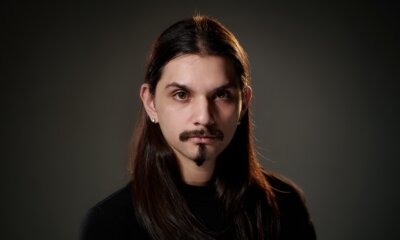

Milovay Is Done Starting Over and Just Getting Started
-


Andre Correa’s New Single “Histórias” Explores How Stories Change in the Telling
-


Miixed Realities Proves Medical Billing Doesn’t Have to Be a Black Hole
-


GMDCASH Talks Comebacks, Jail Time, and Why He’s Just Getting Started
-
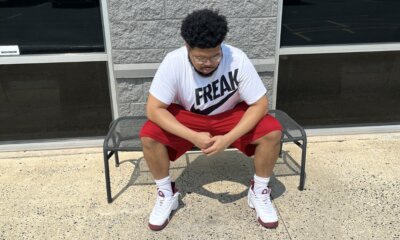

Meet Lil Deezull, the Cambridge Rapper Finding His Moment
Entertainment
How Niraj Nair Builds Worlds Through the People Inside Them
Published
2 days agoon
March 2, 2026
Niraj Nair has a theory about why theater matters. It’s not about entertainment, not exactly. It’s about philosophy. “For those of us who aren’t career philosophers,” he’s said, “the theater serves our place to consider the big questions — love, morality, power and meaning — without pretension, academic background, or the fear of seeming naïve.” For an actor, that’s a serious thing to believe. It also explains a lot about the choices he makes.
There’s a scene in Arjunilia, writer-director Mark Chan’s original short film, where a father tells his son that getting into Stanford Medical School isn’t something to celebrate. It’s a premise that flips the familiar Asian-household pressure narrative on its head, and it works because of what Nair does in the silence after the news lands. As the Son, he doesn’t reach for the obvious choices. He receives the disappointment the way someone who’s spent a lifetime trying to earn approval actually would: with something complicated, something heavy. It’s the kind of realism that gets noticed at awards season. Niraj Nair just does it quietly, in a film that hasn’t had much press yet.
This quiet dedication defines his trajectory. The New York-based actor, who started out in Singapore before training at NYU Tisch, doesn’t announce himself. He earns it. He’s talked about the early days of figuring out the craft as navigating something “so intangible and seemingly innate,” interning in exchange for acting lessons, seeking out whatever he could find. That hunger is still visible in the range of work he takes on, and in the seriousness with which he approaches each role.

“Reflecting the lives of others with honesty, night after night, is our north star that we work a lifetime towards reaching,” he’s said of the craft. It reads like a mission statement, and nowhere is it more evident than in his performance of Thom Pain (Based On Nothing) at Racket NYC, a 650-capacity venue. Will Eno’s Pulitzer finalist play is a solo monologue about a man who won’t quite let himself be coherent, and sustaining that emotional instability across the performance is technically brutal. Nair structured it as a direct negotiation with the audience, using tempo and rupture with real control, holding attention precisely because he refused to give them the stability they wanted. It’s the theatrical equivalent of making a discordant chord resolve on your own terms. The intimacy he finds in Arjunilia and the command he demonstrates in Thom Pain aren’t separate skills. They’re the same skill applied differently. In both cases, the work is about managing exactly how much you give an audience at any given moment.
That instinct extends just as far into his physical work. In The Thing That Waits for Us, an original movement theater piece by Sophie Rossman staged at Mark Morris Dance Center and produced by RE/VENUE NYC, he played the Thing itself, a wordless manifestation of grief. Working without text, he built a full movement vocabulary from scratch, finding something fluid and springy, monstrous and tender at once. The play performed for over 100 people and deserves considerably more attention than it’s gotten. That same formal discipline carried into his Eno River Players debut at the Obie Award-winning Target Margin Theater, in Thornton Wilder’s The Angel That Troubled the Waters, though the challenge there was almost the opposite: not building a physical vocabulary from nothing, but knowing when to pull back, when the architecture of the piece demands space over presence. Working on the Wilder piece, he said, reaffirmed his belief that actors exist to “illuminate philosophy in captivating, deeply human ways.” The result is the kind of performance that makes Wilder’s philosophical questions actually land.
What’s striking across all of it is how rarely he defaults to the obvious interpretation. In Three Cis-ters, Emily Ann Banks’ Chekhov adaptation staged at the Obie Award-winning Tank for its LimeFest festival, he played Natasha, a character traditionally read as the villain of the piece. His read was sharper: a woman navigating economic struggle, gender-based discrimination, and cultural pressure in a household that already sees her as an intruder. The performance earned him a BroadwayWorld nomination for Best Performance in an Off-Off-Broadway Play. The same instinct for subtext shows up in Hayden’s Night Out, Chan’s short film that drops Hamlet’s “To be or not to be” into a street interview format, where he pulls off a tonal shift from frat-boy bravado to genuine existential weight without a trace of theatrical affectation. And at Free Healthcare, a sketch show at the award-winning A.R.T./New York, he showed authoritative comic control across two pieces, including a BBC reporter bit where his unshakeable deadpan was exactly what made it funny. The range is real.
It shows up in his collaborative work too. Jonathan Journals Spontaneously Combusted, a 10-week workshop with the acclaimed Clubbed Thumb, creatively shaped by Tony- and Obie-winning directors Anne Kauffman and Tara Ahmadinejad, is the kind of wacky, abstracted play that could easily lose an audience. Niraj Nair’s job was to keep the absurdity grounded enough that people could feel their own towns reflected back at them. His Off-Broadway debut in The Flip Protocol at Classic Stage Company, written and performed within 24 hours, required the same grounding instinct from a different angle: building genuine paranoid tension inside a Christmas-industrial-complex nuclear bunker premise. He did it through sheer technical focus, making the ridiculous feel like it had real stakes.
His capacity to establish trust quickly across wildly different formats was already evident in his earlier work with Singapore Repertory Theatre. In Pick A Hero, a bullying-focused web series directed by Pangdemonium’s associate artistic director Daniel Jenkins, he carried a lead role with minimal dialogue, relying on physical precision and emotional nuance that registers equally on stage and screen. Ghost Light, an immersive promenade production at KC Arts Center with the audience surrounding him on all sides, required him to build tension and reveal story entirely through relationship. The room was waiting on every word. He held it.
Which brings you back to that theory of his about philosophy and theater. Niraj Nair has talked about wanting his work to make “nebulous ideas of philosophy physical and personal,” to close the distance between big ideas and the people sitting in the dark trying to make sense of their lives. He recalls a teacher once putting it another way: “My job isn’t to become the character per se, but to lend myself fully towards them so that I might find where the character and I can converge.”
It is a demanding standard to set for oneself. Based on the work, he’s closer than most.
Entertainment
Milovay Is Done Starting Over and Just Getting Started
Published
4 days agoon
February 28, 2026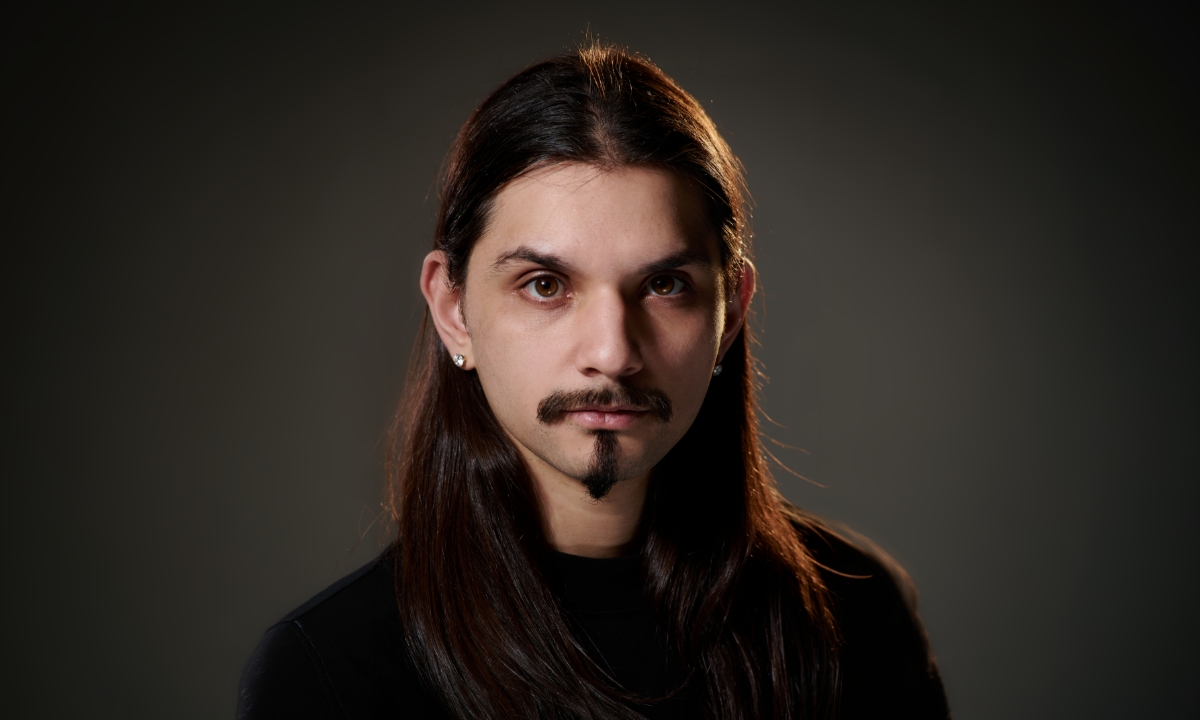
There’s a version of Brandon Serrano that never would’ve landed this article. He spent years pushing names that weren’t working, watching his friends hype him up while the numbers refused to move. It took him a while to figure out the problem wasn’t the music. It was everything around it.
Now he goes by Milovay, and the difference is pretty obvious once you hear the self-titled EP he dropped February 20th.
The four-track project clocks in just under 13 minutes, but it doesn’t feel rushed or underdeveloped. “Finally Open,” “Silver Lining,” “Battle of the Two-Heads,” and “What I Need” each hold their own weight, and the sequencing gives the thing a genuine arc. That’s harder to pull off in a short format than people think. A lot of artists cram four songs together and call it an EP. Milovay actually built something.

The Worcester, Massachusetts native’s R&B and Afro-fusion sound pulls from a pretty specific but interesting set of influences. He’ll tell you Tech N9ne got him hooked on music as a teenager, the speed rapping, the engineer involvement, the obsessive fan connection. But the vocal style owes more to Tory Lanez, that raspy-to-high register range with layered harmonies underneath. It’s a recognizable template, but Milovay doesn’t just ape it. The execution feels considered, not borrowed. And “Silver Lining” is where that execution gets a visual to match it. The song itself is about that specific kind of overthinking that comes with trying to impress someone, not knowing if you’re giving too much or not enough, stuck somewhere between grand gestures and playing it cool.
The video, shot and edited by @trill_is_bliss and featuring co-star @tesqhila, plays that tension straight. There’s no melodramatic breakup, no fantasy sequence. It’s the uncomfortable middle ground the song is actually about, wanting to go all in but second-guessing every move. That’s a harder thing to visualize than heartbreak, and it works.
This is his second EP in just a few months. He dropped “The Lost Scripts of Phenoxism” back in December 2025, and the new one clearly goes in its own direction. That kind of output discipline is notable. Short-form projects released consistently are the current play for independent artists trying to stay relevant without burning through a full album rollout budget, and Milovay seems to genuinely understand the logic of it rather than just following a trend.
He’s also pretty candid about the rebranding process. Years under names that weren’t working, surrounded by yes-people who convinced him the problem was elsewhere. It’s a familiar story in independent music, maybe more common than people admit. What’s worth noting is that he doesn’t frame the past as wasted time. “Peregrine,” “Punani Papi,” all of it, he sees as part of what built him. The willingness to own every version of yourself instead of pretending they didn’t happen is actually rarer than the rebrand itself.
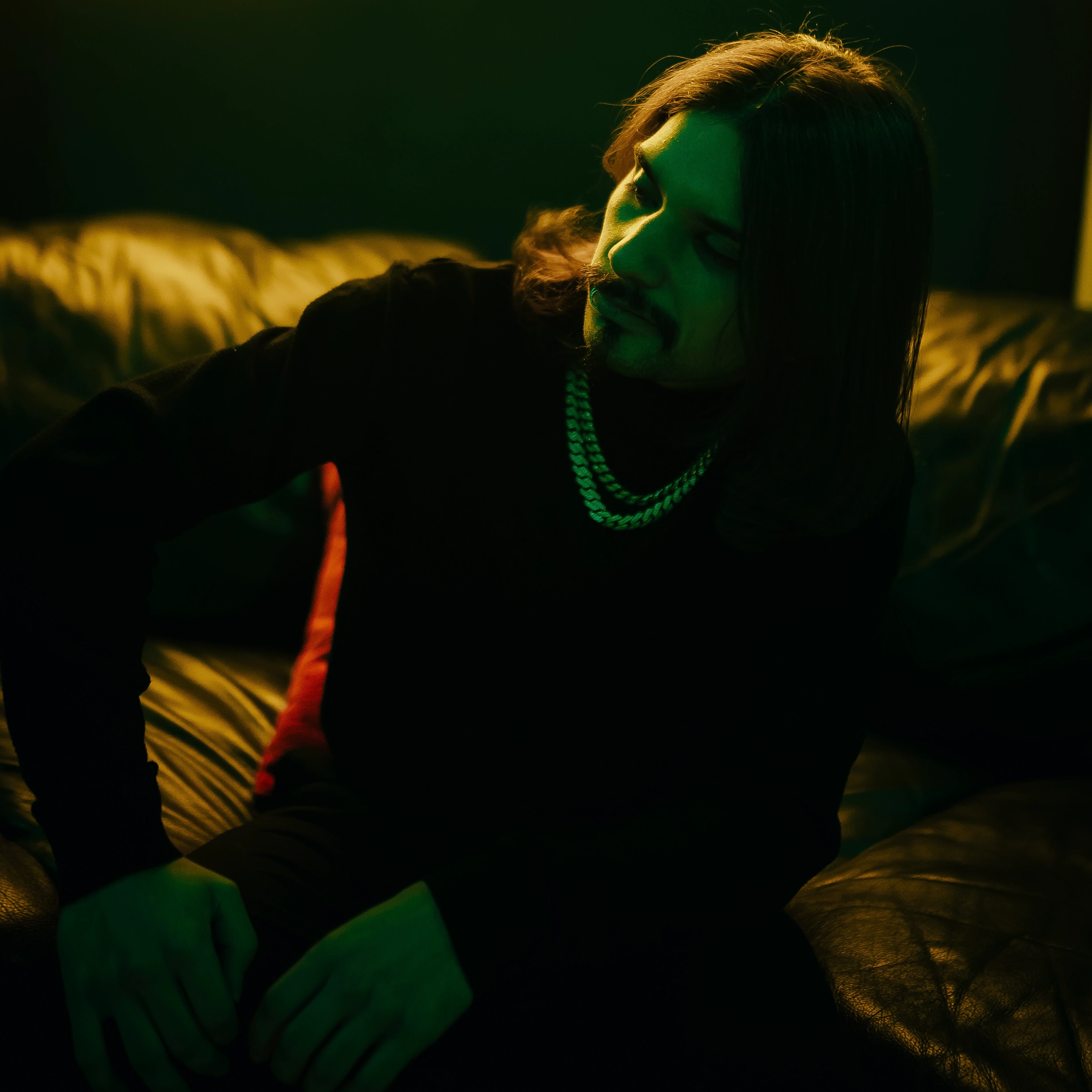
“There is no deadline to make it in this industry,” he said. “I could be 41 and still make moves as if I’ve been doing this for X amount of years.” He means it. Part of what changed is practical too. He talks about finally understanding how to navigate blogs, push his releases correctly, and use social media as an actual tool rather than an afterthought. For independent artists in 2026, that gap between talent and platform literacy is where careers stall. Milovay figured out which side of that gap he needed to close.
Right now the focus is purely on releasing and promoting. No tour dates, no spoilers on what’s coming this summer, though he hints it’ll be worth paying attention to. For a catalog that’s only a few months old under the current name, there’s already a real foundation here.
You can follow Milovay on YouTube, Instagram, and stream his music on Spotify, Apple Music, and SoundCloud.
Entertainment
Andre Correa’s New Single “Histórias” Explores How Stories Change in the Telling
Published
4 weeks agoon
February 2, 2026
The best instrumental music makes you feel something you can’t quite name. Brazilian guitarist Andre Correa’s new single “Histórias” works like that, building a narrative without a single word by exploring how stories transform as they pass between people.
The track, which translates to “Stories” in English, draws from baião and fusion to create something that unfolds like a conversation you’re overhearing. Correa structured the composition around the concept of a game of telephone, where a single idea gets reinterpreted through different emotional filters until it returns to something clearer than where it started. The piece swells and contracts, moving through restlessness and conflict before landing somewhere more settled and direct.

“The work invites the listener to create their own interpretation,” Correa explains. “Each person hears a different story within the same music.”
It’s a fitting approach for a guitarist who treats composition as personal archaeology. Correa, a Berklee College of Music graduate now based in Orlando, doesn’t start with theory or structure when he writes. He starts with whatever he’s actually living through, picking up his guitar and trying to translate feeling into sound. One idea leads to another until the piece reveals its own direction. “I only feel comfortable when I can see the full picture and everything feels cohesive, like the music is telling one clear story,” he says.
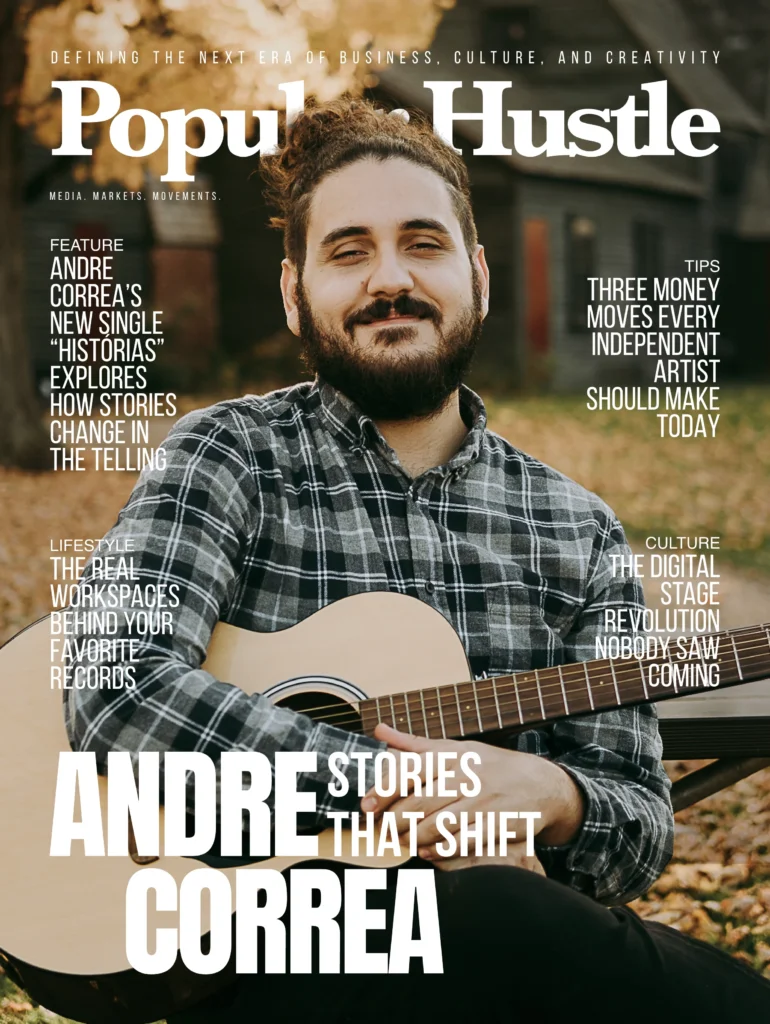
That process shaped his debut album “Seasons,” released November 29, 2025, which documents his years in Boston through seven original tracks. But “Histórias,” releasing in 2026, pushes further into abstraction, examining not just personal experience but the nature of how experience gets communicated and distorted over time. Multiple musical “voices” emerge from a single theme, creating layers that explore the relationship between noise, interpretation, and truth.
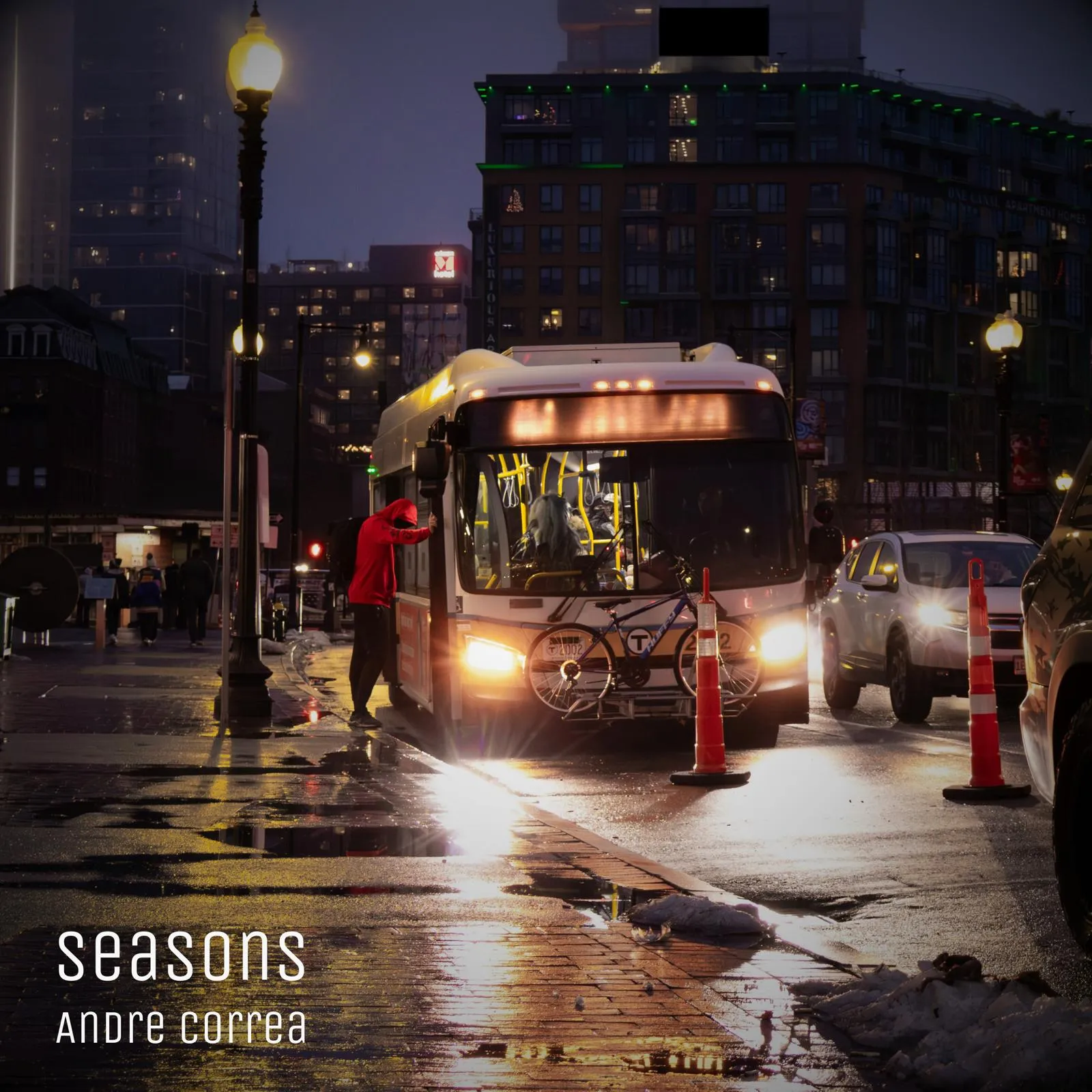
Correa was born in Valinhos, São Paulo, and raised in Campinas, learning keyboard from his father at eight before picking up guitar at twelve. Playing in church communities taught him early that music works best as service rather than spectacle, a belief that stuck through his formal training at Berklee, where he studied with faculty including Danilo Pérez, John Patitucci, and Randy Roos. His time at the Berklee Global Jazz Institute took him into hospitals and rehabilitation centers, reinforcing his sense that music exists to create space for something meaningful to happen.
The immigrant experience of rebuilding life in the United States has informed his writing as much as any classroom. Moving countries, learning to navigate unfamiliar systems, processing the particular loneliness of starting over in a new place: all of it feeds into work that prioritizes emotional honesty over technical display.
“I don’t think of my work as just songs or compositions,” Correa says. “I think of each piece as a small narrative, a space where melody, harmony, rhythm, and improvisation work together to express something human: faith, doubt, change, longing, gratitude, conflict, hope.”
Beyond his recording projects, Correa is preparing to launch an educational book series called “The Ultimate Guide,” with the first volume, “Major Pentatonic: The Ultimate Guide,” scheduled for release in January 2026. The series applies his FCA Method, a framework focused on helping guitarists develop their own musical identity rather than just memorizing patterns. He currently performs regularly at Jazz Tastings in Orlando, where he develops his sound and refines his artistic direction in a live setting.

Correa isn’t chasing anything grand with his music. If someone walks away feeling a little more present, a little more honest with themselves, or simply more connected to their own emotions, he figures the work has done what it was supposed to do.
“Histórias” rewards that kind of attention. The track doesn’t demand you understand it on first listen. It just asks you to sit with it long enough to find whatever story you needed to hear.
Stream Andre Correa’s music on Spotify and Apple Music, and follow his work on Instagram, YouTube, Facebook, TikTok, and LinkedIn. Visit his website for more.



How Niraj Nair Builds Worlds Through the People Inside Them

Milovay Is Done Starting Over and Just Getting Started

Andre Correa’s New Single “Histórias” Explores How Stories Change in the Telling

Miixed Realities Proves Medical Billing Doesn’t Have to Be a Black Hole

GMDCASH Talks Comebacks, Jail Time, and Why He’s Just Getting Started

Meet Lil Deezull, the Cambridge Rapper Finding His Moment

Dennis Dewall Reboards the Spy Genre with International Thriller ‘THE TRAIN’

Saynt Ego on Grief, Mental Health, and Learning to Sit With the Noise

Marloma Talks Learning to Stop Writing in Isolation and Trust the Chaos

Zizzo World Is Building Momentum That’s Hard to Ignore

Yash Kapoor Wants His Records To Feel Like Moments, Not Just Music

Inside the Amazon Reinstatement Process: The aSellingSecrets Approach

Golden Bay Beach Hotel — A Luxury Beachfront Escape in Larnaca, Cyprus

Nodust Writes His Lyrics Last and That’s Exactly the Point

Finding Strength in Walking Away Is the Real Message Behind Judy Pearson’s New Single

Jason Luv Dominates Charts While Inspiring New Wave of Multi Career Artists

Harley West | Inside the Mind of a Social Media Star on the Rise

Raw Fishing | Franklin Seeber, Known As “Raww Fishing” Youtuber Story

Jordana Lajoie Transforms Montreal Roots into Hollywood Success Story

A New Hollywood Icon Emerges in Madelyn Cline

Who is Isaiah Silva – The Story Behind The Music

Tefi Valenzuela Pours Her Heart into New Song About Breaking Free

G FACE Releases His New Single “All up,” and It’s Fire

Gearshift to Stardom: Nikhael Neil’s Revolutionary Journey in the Automotive Industry

Kaia Ra | Perseverance That Built a Best-Selling Author

Holly Valentine | Social Media Influencer & Star Success Story

Kate Katzman | Breaking Into Hollywood and Embracing Change

Thara Prashad | Singer Evolves to Yoga & Mediation Superstar

Tadgh Walsh – How This Young Entrepreneur is Making a Name for Himself

King Lil G | West Coast Hip Hop Genius Rises to Face With Ease

Tefi Valenzuela Pours Her Heart into New Song About Breaking Free

Kate Katzman | Breaking Into Hollywood and Embracing Change

Holly Valentine | Social Media Influencer & Star Success Story

Kaia Ra | Perseverance That Built a Best-Selling Author

Lil Ugly Baby XXX’s “Who?” – The Mixtape to Boost Your Playlist

Samuel Chewning Explains How Fitness Should Be A Personal Journey

Trending
-

 Business4 years ago
Business4 years agoJason Luv Dominates Charts While Inspiring New Wave of Multi Career Artists
-

 Entertainment3 years ago
Entertainment3 years agoHarley West | Inside the Mind of a Social Media Star on the Rise
-

 Culture4 years ago
Culture4 years agoRaw Fishing | Franklin Seeber, Known As “Raww Fishing” Youtuber Story
-

 Culture3 years ago
Culture3 years agoJordana Lajoie Transforms Montreal Roots into Hollywood Success Story
-

 Culture2 years ago
Culture2 years agoA New Hollywood Icon Emerges in Madelyn Cline
-

 Entertainment1 year ago
Entertainment1 year agoWho is Isaiah Silva – The Story Behind The Music
-

 Entertainment3 years ago
Entertainment3 years agoTefi Valenzuela Pours Her Heart into New Song About Breaking Free
-

 Culture4 years ago
Culture4 years agoG FACE Releases His New Single “All up,” and It’s Fire

